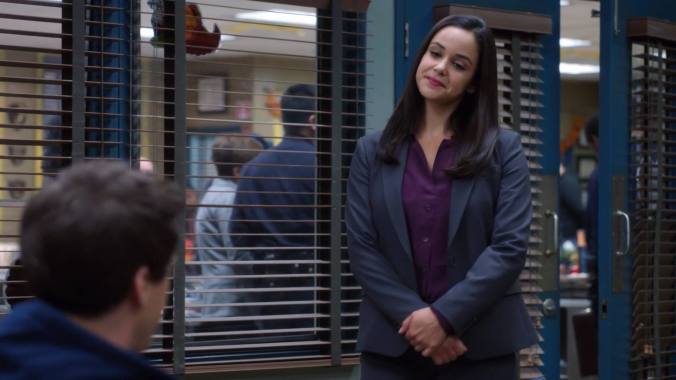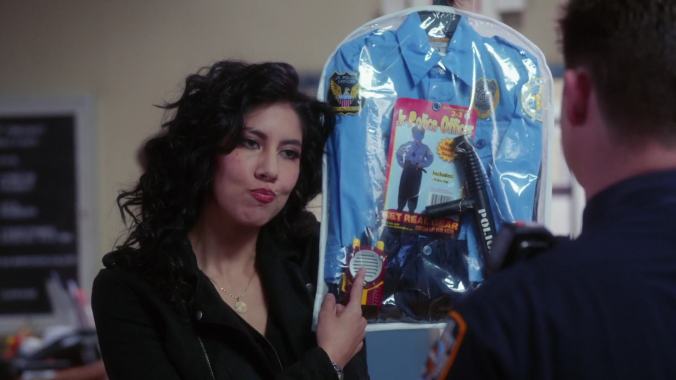Right now, I am in the middle of five weeks of full time managing at my Boring Day Job. This was somehow both totally unexpected (I’ve only been there for nine months! I’ve never managed anyone!) and definitely the obvious solution to our shortstaffing (I was already working twice as many hours as usual! I already do most of the things a manager does! People keep telling me I’m doing a great job and they’re thankful that I’m there and want to support me!).
Full disclosure, I’ve never had a full time job. At one point I was lecturing and tutoring 12 hours a week plus working on my doctorate but that’s not really the same as clocking on for 8.5 hours a day. I’ve never accrued annual leave or had Rostered Days Off, until now. My coping strategy for this extreme increase in responsibility has been spending my free hours binge-watching Brooklyn Nine-Nine for the umpteenth time. But it’s helping!
Lesson #4: Who Cares What Holt Thinks
One final lesson, then, from Amy Santiago.
Ambitious. Competitive. High achiever. Perfectionist. Most of the adjectives that other people would attach to Amy cut both ways–ambition can be good or bad, perfectionism can manifest as attention to detail or cripplingly high expectations. (Trust me, I know.) And Amy is hyperaware of all of her most minute flaws and failings, so surely, a self-evaluation of her own weaknesses should be easy.
The problem is that she tries so hard to give the captain the right answer, that she ends up willing to give any answer, regardless of truth or depth. And it’s Peralta who finally gives her the key to unlocking a healthier way of approaching the question:
Amy Santiago: So I asked Peralta what you thought my biggest flaw was, and he said ‘Who cares what Holt thinks’–
Capt. Holt: That’s not surprising. He’s very disrespectful.
Amy Santiago: But he’s not wrong. My biggest flaw is that I care too much what you think of me. I should be more confident in my own judgement, and I am so sure of that, I don’t even care if you think I’m right. Evaluation over.
(Brooklyn Nine-Nine, season 1, episode 18, ‘The Apartment’)
Yes, it’s important to listen to what the people around you think. But you also have to have confidence in your own decisions, and the conviction to be answerable for them. I moved our floorplan around without consulting our VM manager, and then I explained to her that the previous setup wasn’t working and that I’d tried to improve it. And do you know what?
She wasn’t mad or upset. She didn’t freak out like I’d done something wrong and she didn’t tell me to put it back the way it was.
She listened. And she agreed with what I’d done and she admitted that the setup she’d executed wasn’t ideal, and she thanked me.
Reaction:




